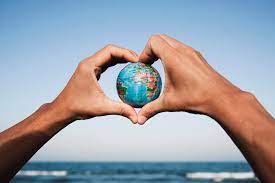Tourism is currently one of the most important economic and cultural activities that a country or region can count on. We understand by tourism all those activities that have to do with knowing or enjoying regions or spaces in which one does not live permanently. Tourism can present many variants since there are different types of tourism: cultural tourism, adventure, entertainment, relaxation. In the same way, there are also different people who carry out different types of tourism: tourism for young people, families, the elderly, couples, friends, etc.
Regardless of the possible variants of tourism, the importance of this activity lies in two main pillars. The first is the one that has to do with the movement and the economic reactivation that it generates in the specific region in which it is carried out. Thus, all the countries and regions of the planet have tourism as one more economic activity that generates jobs, infrastructure works, development of gastronomic and hotel establishments, growth of air, land or sea transport, etc. Obviously, there are regions in the world that are cataloged as some of the most important or dynamic tourism points while others are not, and this will have to do with the attention that each country can give to this activity, creating more possibilities for visitors enjoy.
For decades, tourism has experienced continuous growth and great diversification
While in 1950 there were 25 million international tourists, in 2014 the number increased to 1,133 million, thus becoming one of the most important economic sectors in the world, as it is closely related to the development of a community and encompasses a growing number of new destinations. This dynamic has made it a key driver for socioeconomic progress.
The positive impact on the economy
According to the World Tourism Organization, today, the volume of this business is equal to or even greater than that of oil, food products or automobile exports. Tourism has become one of the main players in international trade, while representing one of the largest sources of income for many developing countries. This growth goes hand in hand with an increase in diversification and competition between destinations.
Tourism is a great generator of sources of employment
The UNWTO ensures that 1 in 11 workers collaborate in sectors related to it, such as hotels, restaurants, tour operators, transport, among others. But not only that, there are other industries that also indirectly benefit; the clearest example is that of all the providers of the services mentioned above, such as food, gas stations, etc.
This activity is also an important source of foreign exchange that helps macroeconomic stability. Furthermore, for many emerging economies, citizens working abroad providing services in the tourism sector generate a considerable flow of remittances. The countries that receive this workforce are also positively impacted by exports of travel and tourism services that derive from the expenses incurred by foreign workers in their economies.
A great promoter of the country brand
Country brand refers to that marketing and communication strategy that is implemented in order to improve the reputation and positioning of a specific country, promoting its main strengths such as culture, sports, companies, historical destinations, etc.
In this sense, tourism helps to raise the profile of the place in general, showing the world all that it has to offer. It can also provide an incentive for investment in infrastructure, such as highways and rail networks, as well as the financing of local medical and educational services, which again impacts the economy and the quality of life of the inhabitants.
Tourism makes us grow
Do you want to know what you are capable of? Travels! Visiting new places changes our way of seeing things and makes us appreciate the differences. It gives us vitality and places us in the present moment, two keys to happiness.
There is no better way to get to know the richness of a place and learn from it than to live it through the experiences of local people and take every moment as an opportunity for growth, as we immerse ourselves in the culture, try different food, learn new words. , adopt new habits and make new friends, will lead us to break old beliefs and rediscover ourselves.
As tourists we must allow ourselves to open our minds without judging. Knowing a new culture makes us face new ways of doing things, some of them probably seem crazy, insecure, unhealthy, or simply meaningless, but there is always a life lesson to learn, if we are willing. Consciously enjoying each place we visit will make us return home better human beings.
On the other hand, tourism has another pillar that we can call sociocultural. Here, the importance of tourism will reside in the fact that it is through it that the human being can get up close and personal with other cultures, other societies, other ways of living and other geographical environments. Although all these data can be known through encyclopedias, maps and photos, it is only through tourism that the person can interact directly with those realities different from the ones one is used to experiencing, thus being able to enrich their own culture and personal experience.

